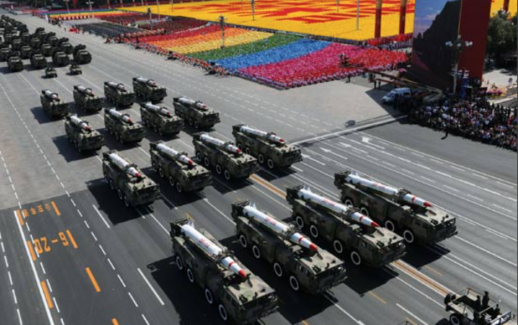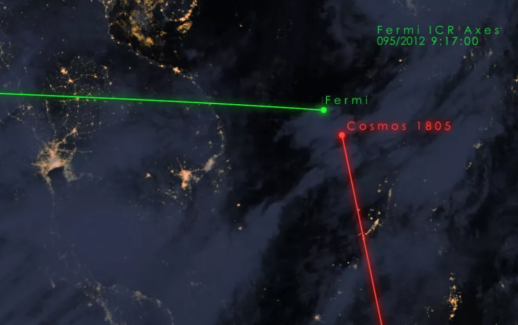Current Issue
Friday, President Vladimir Putin boasted that Russia did not need to use nuclear weapons to conquer Ukraine. Pride. And today, Reuters reported new references to Russia’s possible use of tactical nuclear weapons from the Russian MOD and Spokesperson Dmitri Peskov. Fear. This is more of Putin’s pattern of untrustworthy, contradictory communications seeking arbitrary control over the course of hundreds of millions of people across continents.
Per Reuters:
“In the first stage of the drills, Russian troops trained how to arm and deploy Iskander missiles, while the air force trained how to arm Kinzhal hypersonic missiles.
The second stage, announced on Tuesday, involved working out joint training of Russian and Belarusian units “for the combat use of non-strategic nuclear weapons”, the defence ministry said.
“The situation on the European continent is quite tense, which is provoked every day by new decisions and actions of European capitals hostile to Russia, and above all by Washington,” Kremlin spokesman Dmitry Peskov said when asked about the drills.
“Therefore, of course, such exercises and maintaining combat readiness are very important for us.”
https://www.reuters.com/world/europe/russia-belarus-start-second-stage-tactical-nuclear-drills-ministry-says-2024-06-11/
Putin’s Imperialist Telegraphs
After the chaos of the 1990s, Putin took over after Yeltsin’s orchestrated resignation and announced New Years Eve 1999 that the 21st Century would be the new “Russian Century,” not the ‘multi-polar century’ as he later termed it to cover up his actual intentions. The new Russian Century rhetoric smacked of imperialism and he wanted to deliver that emotional security blanket to Russians because it is what he meant, but he walked it back internationally with a forked tongue.
In its June 16, 2022 piece “From Accepting NATO Aspirations to ‘Denazifying’: 20+ Years of Putin’s Changing Views on Ukraine,” a staff editorial at Russia Matters by the Harvard Belfer Center noted another glimmer of Putin’s underlying imperial mindset that plays at openness and harmony with Europe but rests on imperial plans. Referring to Europe, Putin said, “If they push us away, then we will be forced to find allies and reinforce ourselves. What else can we do?” (Quote Source: Nataliya Gevorkyan, Natalya Timakova, and Andrei Kolesnikov’s “First Person: An Astonishingly Frank Self-Portrait by Russia’s President Vladimir Putin,” in Public Affairs, 2000).
In another quote taken by the Russia Matters editors as a statement of Putin’s then-openness: “Of course, Russia is a very diverse country, but we are part of Western European culture,” Putin said in 2000. “No matter where our people live, in the Far East or in the south, we are Europeans.” At the time, after observing the flash of dramatic imperial self-signaling surrounding Putin’s assumption of Yeltsin’s seat before his term ended, the above quotes could be interpreted as Putin’s rhetoric of stealth revanchism regarding Eastern European countries claimed by Stalin as Russian satellites from Hitler’s spoils.
Arguments
Eastern Europe did not attack Putin, the Nazi dictatorship did. And neither Ukraine, the E.U., NATO or any other country attacked Russia post-USSR. Despite this, Putin’s uncompromising assertion of control over far broader landmasses than Moscow can effectively lead is a repeat dictatorial failure that the Soviets proved was futile. All this, to the disservice of Russians, neighboring states, and the world as the opportunity costs tick away to tackle global problems affecting the world’s hundreds of other sovereign countries.
While constant NATO membership growth may be the right of every independent country surrounding Russia, it presents a cart and horse conundrum in that such countries have memory of Russian invasion, incursion, destabilization, atrocities, and rule over time and need collective protection from same. However, Russia has a big country’s fear of balancing peer powers’ presence at its borders.
And yet China is at Russia’s border and Putin allies with Xi because one dictator’s rule tends to justify another’s, indicating that this was never about NATO or Russians’ well being but Putin’s imperial perks. In addition, China has fought border war with Russia whereas NATO and nearly all European nations since the end of WW1 have not aggressed against Russia. Also, NATO is a mutual defense treaty, not a poly-mutual aggression treaty.
Concluding Thoughts
What is the strategic solution? Deterrence by alliance is logical as both Russia and its neighbors can freely choose theirs — however, the balance of power requires denuclearization of border areas to avert first strike threats with nuclear missiles.
Yet it was easier to achieve deterrence and nuclear detente with the Soviets that experienced their own system in a more humble economic light by the 1980s than it has been with Putin who is unreliable, emotional, and has sought destabilizing advantage by putting tactical nuclear arms in Belarus. The tactical designation is folly in that tactical nuclear arms can also escalate to the next level.
No Soviet leader ever used tactical nuclear arms in combat during the Cold War given Mutually Assured Destruction risks. Putin’s escalate to de-escalate policy is not an improvement on the Soviet Union’s policy, but a regression below it, which is like saying that going lower than hell makes hell ordinary, and purgatory look like a vacation resort.
If Putin’s gamble to hold Ukraine has been a dictatorship’s bad judgement, how much more so his decision to threaten tactical nuclear warfare? And that not for defense, but to expand outward to lands the USSR could not effectively govern without genocidal and grossly negligent, even intentionally negligent handling of disasters there? Indeed, Putin has caused disaster in Ukraine during this war, and threatens more.
Such is Russian dictatorship under yesterday’s hardliner KGB retirees.

